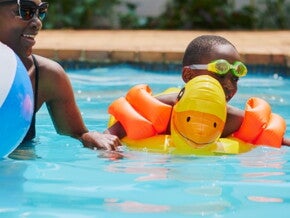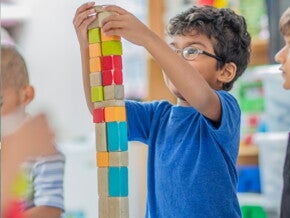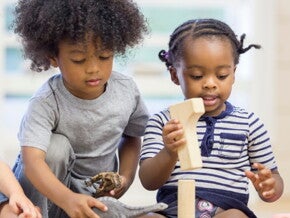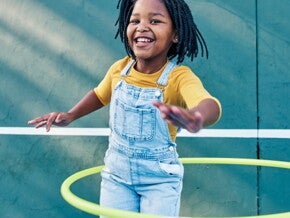
Strong body, strong mind: why exercise is vital for early childhood development
Toddlers and children need plenty of physical activity to develop in a range of ways. Not only does it strengthen their muscles and bones, but it also gives their brain a workout too.
When we talk about exercise and kids, it’s all about playing and getting your child moving. It can take on any form of physical activity, wherever you are, and it doesn’t have to cost you a cent. Let’s dive deeper into the benefits exercise for your child’s mental development.
Cardio, cognition and coordination
Doing something physical automatically engages the mind. When your go-go kiddo is running around, climbing, kicking balls and doing somersaults it supports their motor-, visual and planning skills, which can influence learning and problem solving.
Getting the heart pumping gets more oxygen to the brain and releases happy hormones that help boost your little one’s mood and enhance their emotional wellbeing. Which can help with behaviour, building confidence and managing anxiety and stress.
Did you know your 3–5-year-old should be getting 3 or more hours of physical activity a day? Since each child is unique with different levels of energy and interests, aim to make physical activity a regular and frequent part of your child's day rather than focusing on reaching a specific number.
Better nights are made in the day
Sleep is vital for little bodies as it releases growth hormones and is the time where memories are consolidated, meaning it affects a child’s ability to learn and retain information. More than just tiring you out, studies have shown that exercise can improve sleep quality.
Therefore, the better your child sleeps, the more energy they (and by default you) will have. Any parent or caregiver can tell you that a bad night can influence their and your day about the challenges of dealing with a tired and fussy child.
Top tip: Get the whole family moving
Playing together is a great way to bond. Plan for it in your day - if exercise is a family priority, children and parents will be more likely to enjoy it, stick to it and create a lasting habit.
Kids can get in some physical activity both indoors and outdoors, the key is to make it fun and engaging for little minds and muscles.
- Walk as much as possible whenever it’s possible: Take the stairs, walking to your destination or park further from the entrance.
- Take indoor games, like hide and seek, I spy, scavenger hunts and musical chairs, outside.
- Create indoor obstacle courses.
- Have dance parties and pillow fights.
- Commit to visiting a nature reserve or a park over the weekend. Having the space to run, chase and play will get everyone’s heartrate up without you even noticing.
- Let them choose an activity and follow their lead…this one’s also great for their imagination.




